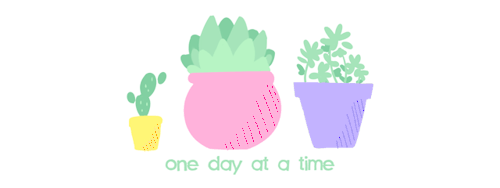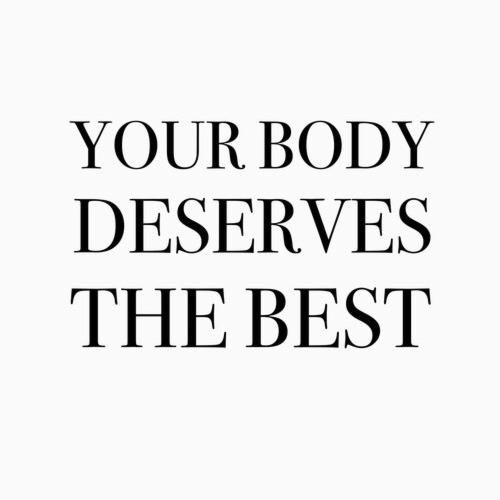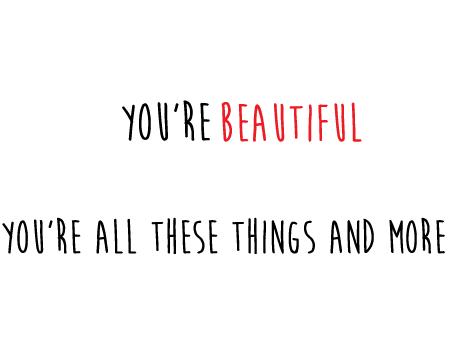Yesterday marked me reaching one
year without self-harm. This is an anniversary that seemed distant for eleven
months, overwhelmingly difficult for the entire twelve months, and yet I was
determined to reach it. It’s not that a year is the longest I’ve ever managed.
Nor can know for sure that I will never self-harm again. But it was important
for me, as a personal kind of challenge, to be a year without incident by this
summer. I set my mind to it and, no matter what occurred, and a lot has
happened over that time, I didn’t want to use my usual methods to cope with it.
You may or may not struggle with
self-harm. There may be other coping strategies you use that you find equally
unhelpful, but familiar; whether that be overeating when stressed, retreating
from the world when afraid or drinking to numb your emotions. I would like to
share five things that have helped me stick to my promise of reaching my year’s
milestone. I hope that, wherever you’re at, they can help you in some way too.
Count the moments, not the days.
I made the mistake, early on, of
noting what date would signify my year without self-harming. Whilst this was
helpful so that I knew where I was heading, it made it more difficult
day-to-day. To know that I still had months to go was disheartening when I was
struggling. To look to a date in the future also took away from the achievement
of not self-harming on single, difficult days. If you’ve used a means of coping
for a number of years, it becomes addictive and automatic. Therefore, it’s such
an achievement when you manage a moment without it. This moment should be
counted.
Do the opposite of what you want to do.
When everything in my mind was
telling me that I needed to hurt myself, either as a means of coping with
stress or as a way of “punishing” myself, the biggest way I could choose not to
act on those thoughts was to do the very opposite of what they were telling me
to do.
If I felt like I couldn’t cope
with stress, I would continue to pursue what was making me anxious. Of course,
that isn’t to say that if you genuinely don’t have the resources to manage, you
should put yourself in impossible situations. But I know that stress often
occurs for me in situations that are manageable, albeit difficult.
Secondly, if I want to punish
myself or attack myself physically, the very best way of counteracting that is
to do something nice for myself. If I have a tough therapy session, I’ll take
myself to a coffee shop for coffee and cake. If I want to use my hands to
damage my body, I will use them to paint my nails or rub in moisturiser. If I
want to withdraw from positive opportunities, I will leave the house and
intentionally find something I will enjoy.
Stepping back from the intensity of
my emotions by acting opposite to them gives the space needed to find a helpful
resolution and to consider alternative options. It tells my body that there are
numerous ways of responding which don’t have to involve self-harm.
Ask if there is another way of seeing the situation.
I am prone to very black and
white thinking. If I struggle to speak, I’m a “failure.” If life isn’t how I
want it to be, I “need to die.” I think in extremes of good and bad, right and
wrong. But the world is many shades of grey and filled with “fairly goods” and “not
quite rights.” If you aim for a situation to go a certain way and it doesn’t,
it’s easy to feel desperately disappointed. Rather than feel bogged down by
that, I ask myself what could have made it better, what may have got in the
way, and also consider what was positive about a situation.
I have had therapy sessions where
I have been silent for thirty out of the sixty minutes. I get frustrated that I
am losing time I could be utilising. I get angry at myself for not doing something
so seemingly easy as speak. But if I have only been silent for thirty minutes,
that’s still half an hour I used well and, if I manage to turn a session around
at the end, that’s taken strength. Even if I’ve needed to write my therapist a
letter explaining my prolonged silence, I’ve done something proactive and
helpful. There is something positive to take from every situation. Therefore,
just as there may be reasons, in my mind, to harm myself, there are reasons to
treat myself kindly.
Remember that thoughts aren’t necessarily facts.
“I am a failure.” “I am better
off dead.” “I always screw things up.” “Everyone hates me.” These are thoughts
that enter my head on, probably, a daily basis and that make the temptation of
self-harming all the more appealing. However, it doesn’t take many moments of
talking to someone else about these thoughts before they begin challenging
them. “What about the degree you gained?” “What about the goals you want to
achieve?” “What about the success of your writing or artwork?” “What about your
family?”
I treat every thought as if it is
factual and accurate, and then respond accordingly. This isn’t helpful. I could
have the thought that I’m a millionaire, but if I act as if that is true, I
would have bailiffs on to me in a matter of days. Acting on our thoughts has
consequences, so it is really important that we check the facts. Is what I am
thinking based on evidence and fact? Or is it personal opinion and wishful
thinking?
If I challenge my negative
thoughts with alternatives, which are factual, there is lesser likelihood that
I will want to self-harm. This isn’t to say that I don’t screw things up, but
that there are times when I do things well, which deserve just as much
attention in my thought-life.
Don’t use the past as a reflection of what your future will become.
There are numerous, substantial
events from my years growing up that have a huge effect on how I feel about
myself. I blame myself for situations in which I was the victim and I remember cruel
words bullies and abusers said to me. I often think that is how my life will
continue to look into the future, thus leaving me desperate and wanting to take
it out on myself.
However, just because I have a
past that is painful and people have hurt me, it doesn’t mean that my future
will look the same. I get to decide what I’m worth and my actions demonstrate
that to others. There is no way of knowing what difficulties any of us will
face in the future, but that is independent of where we have come from. We can
choose what we make of the years to come, the amount of value we place on
ourselves and what we are willing to put up with from others.
I’m hopeful of another year
without self-harm. Using the above methods has helped me immensely, as well as
considering what the pros and cons of hurting myself would be. This is a
day-to-day process for me, but it is possible to succeed. Every moment is worth
counting.




0 comments:
Post a Comment
No judgment, no hate, because it is already tough enough being a girl.